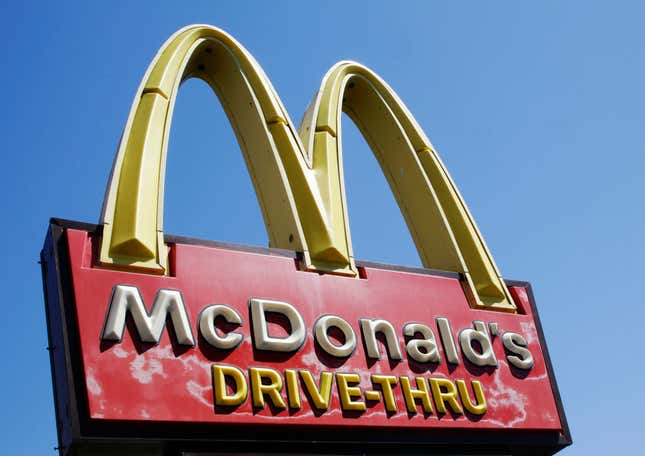
After three years of exceptional sales growth, McDonald's appears to be returning to Earth.
The Chicago burger giant said Monday it expects its same-store sales — or sales at locations open at least a year — to rise 3% to 4% this year, which is in line with historical averages. That's down from double-digit gains in 2021 and 2022 and 9% growth last year.
“I think we are moving into a 2024 that’s going to look more like what you would have considered a typical year prior to COVID and all the things that have gone on,” McDonald's President and CEO Chris Kempczinski said Monday during a conference call with investors.
McDonald's shares dropped 3.5% in early trading.
McDonald's got a glimpse of what's to come in the fourth quarter when it lost sales in the Middle East and other markets due to the war in Gaza and saw fewer visits from lower-income consumers in the U.S.
McDonald's global same-store sales rose 3.4% in the October-December period, well below the 4.7% increase Wall Street was expecting, according to analysts polled by FactSet.
Customers in the Middle East were angered after McDonald’s Israel – which is operated by a local franchisee -- announced in October it was providing free meals to Israeli soldiers. In response, some franchisees, like McDonald’s Oman, announced donations to relief efforts in Gaza. Sales have since dropped in Muslim-majority countries like Malaysia and Indonesia as well as countries with large Muslim populations like France.
“So long as this conflict, this war, is going on... we’re not expecting to see any significant improvement in this,” Kempczinski said. “It’s a human tragedy, what’s going on, and I think that does weigh on brands like ours.”
McDonald’s wasn’t the only U.S. company seeing backlash from the war in recent months. Starbucks said last week that it faced boycotts in the Middle East and elsewhere because of its perceived support for Israel.
In the U.S., McDonald's same-store sales rose 4.3% in the October-December period, fueled by price increases as well as successful promotions like its Happy Meal collaboration with artist Kerwin Frost. But Kempczinski said there were fewer visits and lower spending by customers earning $45,000 per year or less.
Kempczinski said that as grocery inflation has retreated, those customers are more likely to eat at home. McDonald's hopes to get those customers back into its stores this year with marketing that emphasizes low-cost options.
“We certainly know consumers are more wary — and weary — of pricing and we’re going to continue to be consumer-led in our pricing decisions as we look forward to 2024,” Chief Financial Officer Ian Borden said.
In China, where consumer sentiment is at record lows, McDonald's is also ramping up deals to match competitors, Borden said.
It was an unexpected end to an otherwise strong year for the burger giant. Viral marketing hits, like last spring’s Grimace shakes, and upgraded menu items helped to boost full-year revenue by 10% to nearly $25 billion.
McDonald’s revenue rose 8% to $6.4 billion in the fourth quarter, meeting analyst expectations. Net income was up 7% to $2 billion.
Excluding one-time items, such as $66 million restructuring charge, the company earned $2.95 per share. That beat analysts’ forecast of a $2.83 per-share profit.